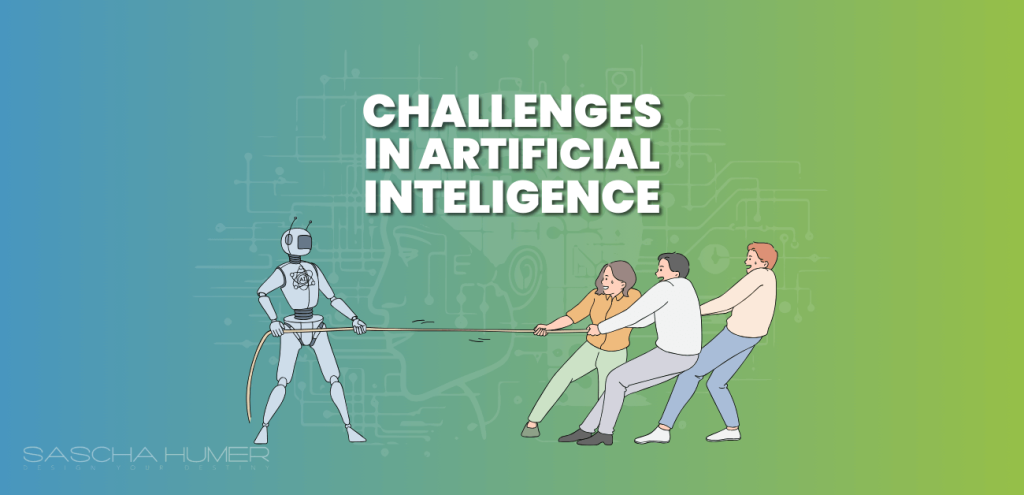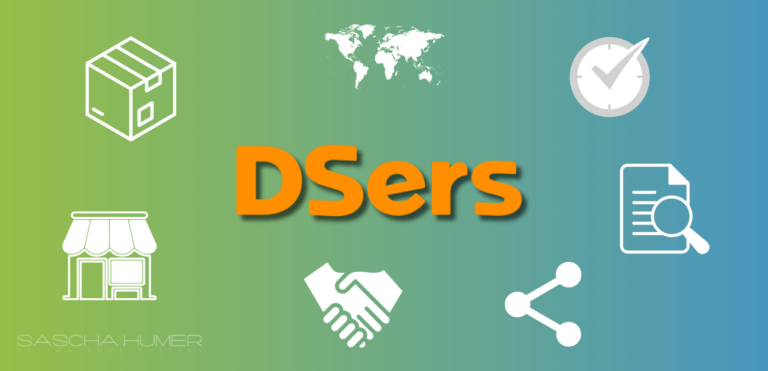Ever heard, ‘Change is the only constant’? Well, you’re living it in the eCommerce world. With AI’s advent, you’re on a rollercoaster ride, witnessing the good, the bad, and the ugly of this tech wonder.
It’s transforming how you do business, offering benefits and challenges alike. You’ll explore AI’s impact on eCommerce, its use cases, and how to implement it.
So buckle up, we’re diving deep into the intriguing world of AI in eCommerce.
- AI in ecommerce enhances customer experience, streamlines operations, and maximizes profits.
- Artificial intelligence offers personalized shopping experiences, automated customer service, and efficient inventory management.
- AI revolutionizes marketing strategies by analyzing massive amounts of data.
- Implementing AI in ecommerce presents challenges, but overcoming them can fully leverage AI’s potential.
What is even Artificial Intelligence (AI)?
Artificial Intelligence (AI), a term that’s no stranger to the tech-savvy, is being utilized increasingly in the ecommerce industry. In essence, AI is a set of complex algorithms and systems that can mimic human intelligence, learn from experiences, make decisions, and execute tasks.

The use of AI in ecommerce has transformed the way businesses operate and interact with their customers. Ecommerce businesses are leveraging AI applications to enhance customer experience, streamline operations, and increase revenue. So, what’re the benefits of AI in ecommerce?
AI offers personalized experiences to customers by analyzing their browsing patterns and purchase history. This not only increases customer satisfaction but also boosts sales. Additionally, AI-powered chatbots provide 24/7 customer service, handling queries and complaints efficiently.
Predictive analytics, another application, helps businesses forecast sales, manage inventory, and devise effective marketing strategies.
Advances in Technology and Ecommerce
You’re witnessing firsthand how advances in technology and ecommerce, like the integration of AI, are revolutionizing the online shopping experience. Artificial intelligence in ecommerce isn’t just a buzzword; it’s a game-changer.
This isn’t your grandfather’s shopping cart anymore. These technologies are reshaping ecommerce, creating an interactive, personalized, and seamless buying journey.

Ecommerce AI isn’t just about chatbots. It’s about predictive analytics, intelligent searches, and personalized recommendations. AI use cases in ecommerce are vast, from automated customer service to inventory management and pricing strategies.
It’s not just about making life easier for you as a shopper, but also for the merchant, who can leverage AI to optimize operations and maximize profits.
The benefits of AI in ecommerce are far-reaching. It’s about providing a tailored shopping experience, delivering the right product, to the right person, at the right time. Data-driven insights and efficient decision-making. It’s about transforming the way we buy and sell.
The advances in technology and ecommerce, particularly the advent of AI, aren’t just changing the game; they’re rewriting the rules. And you’re in the front seat, watching it all unfold.
AI Is Bringing Change to the Ecommerce Industry
In the ecommerce industry, you’re seeing AI bring significant changes, aren’t you? The use of artificial intelligence is transforming the ecommerce landscape, reshaping how businesses operate and interact with customers.
Ecommerce businesses are using this technology to enhance customer experience, streamline operations, and maximize profits.

AI in ecommerce isn’t just a buzzword; it’s a game-changer. By leveraging AI, businesses are able to offer personalized shopping experiences, automated customer service, and efficient inventory management.
It can help in predicting consumer behavior, enabling businesses to anticipate needs and adjust strategies promptly.
Moreover, Artificial intelligence is bringing change by revolutionizing marketing strategies. With it’s ability to analyze massive amounts of data, businesses can create precise, targeted marketing campaigns. This not only improves customer engagement but also drives sales and growth.
The benefits of this technology in ecommerce are undeniable, but it’s not without its challenges.
Issues like data privacy concerns and the fear of job displacement due to automation can’t be overlooked. But, it’s clear that AI is here to stay, and its role in ecommerce will only grow.
Now, let’s delve deeper into the benefits of using artificial intelligence in ecommerce companies.
Benefits of Using Artificial Intelligence in Ecommerce Companies
Your company’s ability to analyze customer data through AI can significantly boost your ecommerce success. The benefits of using technology like this are manifold, especially for ecommerce companies.
It’s not just about being tech-savvy; it’s also about leveraging AI ecommerce solutions to create a seamless, personalized customer experience.

One of the most innovative ways to use AI in ecommerce is through AI chatbots. These virtual assistants can offer 24/7 customer service, handling inquiries, and solving problems in real-time.
They’re efficient, they’re always on, and they can handle multiple queries at once, saving you time and resources.
Even though in the past automated chatbots were a big pain. Ai chat bots on the other hand can interact like a real human being. They don’t have to rely on templated responses, but work around rules and information about your business.
Those chatbots almost “think” to provide a solution that is custom to your customer but still abites those rules and company information you provide it with.
Then there’s the power of AI to provide personalized product recommendations. By analyzing customer data, AI can predict what a customer might want to buy next, based on their previous purchases and browsing behavior.
This data-driven approach can be further enhanced by using the right CRM tools. This not only enhances the shopping experience for the customer but also increases your sales and conversion rates.
But it’s not all rosy. While AI offers impressive benefits, it also comes with its own set of challenges. As we transition to the next topic, we’ll delve into the obstacles ecommerce companies face when implementing AI solutions.
Challenges of using AI in ecommerce
While you’re enjoying the benefits of AI in ecommerce, you’ll also face challenges such as data privacy concerns and technological limitations.
Implementing AI isn’t always a smooth process, and it’s crucial to understand the potential pitfalls.

Here’s a breakdown of the challenges you could encounter:
1. Data Privacy:
- The ecommerce artificial intelligence systems thrive on data, but collecting and managing this data brings about privacy concerns.
- Customers might be wary about how their data is used, making it a priority to ensure you’re transparent about your data policies.
2. Technological Limitations:
- Implementing AI is a complex process that requires technical expertise.
- Even with the right tech team, AI systems can encounter errors that might affect the customer experience.
The applications of AI in ecommerce are vast, from automating tasks to improving customer service, but the road to fully implementing AI is filled with challenges.
However, with a detailed understanding of these challenges, you can better prepare your ecommerce business for a successful AI integration.
AI Use Cases in Ecommerce
You’ll find AI’s application in ecommerce quite fascinating, ranging from customer service automation to personalized marketing efforts.
The use cases of AI in this area are diverse and impactful. Let’s unravel how AI tools are revamping the ecommerce platform.
It is revolutionizing the ecommerce industry by offering a wide range of applications that enhance customer experience and improve efficiency. Here are 10 use cases of Artificial Intelligence I in an ecommerce store:
AI’s application in ecommerce is incredibly diverse and impactful, with benefits ranging from customer service automation to personalized marketing efforts.
Here are 10 use cases of AI in ecommerce, highlighting its benefits and how to use it:

- Product Recommendations
Artificial Inteligence analyzes buying behavior to suggest products, improving customer experience by delivering personalized recommendations based on past patterns. - Customer Service
It provides instant responses to queries, reducing wait times and improving customer satisfaction through efficient and automated support. - Predictive Analytics
AI powers predictive analytics, enabling businesses to forecast trends and make informed decisions, leading to better inventory management and demand forecasting. - Personalized Marketing
AI works as an solution for ecommerce and tailors marketing efforts to individual preferences, allowing businesses to create targeted campaigns and increase conversion rates. - Conversational AI
By integrating conversational AI tools, ecommerce businesses can offer chatbots or virtual assistants that can engage customers in real-time conversations, enhancing the overall customer experience. - Business Intelligence
AI and machine learning algorithms can help ecommerce businesses gain valuable insights from data, enabling them to make data-driven decisions and optimize operations. - AI Email Writer
AI-powered email writing tools can help ecommerce businesses create personalized and engaging email campaigns, improving customer engagement and conversion rates. - Ecommerce Marketing
AI can help ecommerce businesses optimize their marketing strategies by analyzing customer data, identifying trends, and recommending effective marketing channels. - Ecommerce Site Optimization
It can analyze website data and user behavior to identify areas for improvement, such as optimizing website layout, improving navigation, and enhancing user experience. - Fraud Detection
It can automate the detection and prevention of fraudulent activities, protecting ecommerce businesses and their customers from potential scams and unauthorized transactions.
Overall, AI in ecommerce offers numerous advantages, such as improved customer experience, increased efficiency, and better decision-making. By leveraging AI tools and solutions, ecommerce businesses can stay competitive in the digital landscape and drive growth.
Such applications are reshaping ecommerce, making it more customer-centric and efficient. Keep exploring the tech-savvy world of AI’s influence on ecommerce!
How to Implement Artificial Intelligence Into Ecommerce
In the ecommerce sector, it’s crucial for you to understand AI’s potential and how to implement it effectively, but it’s equally important to be aware of potential pitfalls and challenges. When integrating AI into your ecommerce website, there’s no one-size-fits-all solution. You’ll need to use machine learning algorithms tailored to your specific needs and challenges.
As an ecommerce retailer, here’s what you need to know:
- Deploying AI:
Understand your needs: Identify areas where it can enhance customer experience or streamline operations.
Choose the right AI solution: Different tools offer varied capabilities. Make sure the one you pick aligns with your business objectives. - Potential Pitfalls:
Over-reliance on AI: It should augment, not replace, human decision-making.
Data Privacy: As you collect and use customer data, respect privacy laws and ethical guidelines.
Recap
Before the day ends and as we’re wrapping up, it’s essential that you evaluate the success of your AI implementation in ecommerce. You’ve seen the use cases of artificial intelligence, understood the benefits, tackled the challenges of using AI, and now it’s time to analyze how AI can improve your business operations.
Firstly, it’s vital to understand the importance of it in ecommerce. It’s not just a buzzword but a tool that’s transforming the industry. For instance, Artificial intelligence I helps in predicting customer behavior, improving recommendations, and auto-responding to customer inquiries. These are just a few examples that highlight its significance.
However, it’s not all roses. There are challenges that can’t be ignored. It can be expensive, there’s a learning curve involved, and there’s the risk of over-reliance. But, the benefits of artificial intelligence often outweigh these drawbacks.
Conclusion
In a nutshell, AI in ecommerce is a game-changer, turning the industry on its head. It’s not just a pretty face; it’s the brains behind the operation, the wizard behind the curtain.
But beware, it’s not all rainbows and unicorns. There’s a dark underbelly, challenges that could knock you sideways. But, implemented right, it’s like striking gold.







